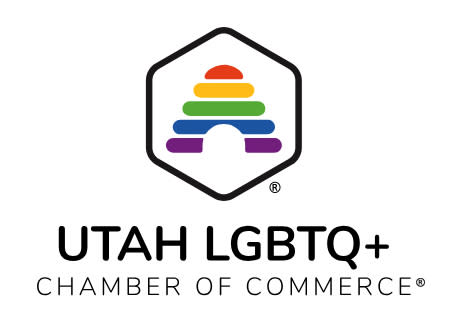Utah LGBTQ+ Chamber of Commerce

The Utah LGBTQ+ Chamber of Commerce takes action to correct credit report problems for transgender and nonbinary consumers.
For Immediate Release
Today, 145 organizations, including the Utah LGBTQ+ Chamber of Commerce, sent a letter to the “Big Three” credit bureaus (Equifax, Experian, and Transunion) and to the Consumer Data Industry Association (CDIA), the trade association that represents them, urging them to take needed actions to correct credit report problems for transgender and non-binary consumers.
The signatory organizations include LGBTQI+ advocacy organizations, community centers, chambers of commerce, businesses, and community groups, as well as consumer, employment, housing, and anti-poverty organizations.
The letter responds to the CDIA’s February 2 announcement, “Helping Transgender and Nonbinary Individuals Prevent Potential Disruptions to Their Credit,” that describes new policies at the Big Three credit bureaus to allow transgender and nonbinary consumers to submit name-change documentation to update the name on the credit reports. The letter acknowledges the credit bureaus’ new policies as an important first step and recommends additional action to correct persisting problems for trans and nonbinary consumers. After a legal name change, many transgender and nonbinary consumers end up with multiple credit files in different names and suffer a loss of credit history and score as a result. Additionally, credit reports out trans and nonbinary people to landlords, employers, and lenders when they apply for loans, jobs, and housing because the report still includes their deadname.
To address ongoing problems the letter calls on credit bureaus to take additional steps, including:
Using consumers’ full 9-digit Social Security numbers in matching algorithms to ensure credit information is associated with the correct credit file.
Facilitating name changes by having clear procedures to update a consumer’s name on their credit report when presented with a legal name change order, and ensuring that staff are sufficiently trained in those procedures and are able to provide culturally competent service to transgender and nonbinary consumers.
Reducing the burden on transgender and nonbinary consumers to submit name-change documentation to each credit reporting agency by instituting a “one-stop” system that allows a consumer to submit a single request to have the legal name on their report updated, and ensures the request is communicated to all consumer reporting agencies.
Preventing the occurrence and recurrence of fragmented credit files by creating procedures to detect when a consumer changes their legal name with a creditor, to associate the new name with their credit file, and to consolidate a consumer’s credit information in their current and previous names in a single credit file — as the industry presently does when cisgender women and other consumers change their last names.
Preventing the disclosure of transgender and nonbinary consumers’ deadnames to landlords, employers, and underwriters by disclosing only a consumer’s current legal name in reports provided to credit report users.
The letter was organized by a coalition of LGBTQI+, consumer, and employment advocacy organizations–including the California Employment Lawyers Association (CELA), Center for LGBTQ Economic Advancement & Research (CLEAR), Equality California, the Transgender Legal Defense and Education Fund (TLDEF), the National Consumer Law Center (NCLC), and the UC Berkeley Center for Consumer Law & Economic Justice.
The full letter and list of signatories can be downloaded and read as a PDF here.
